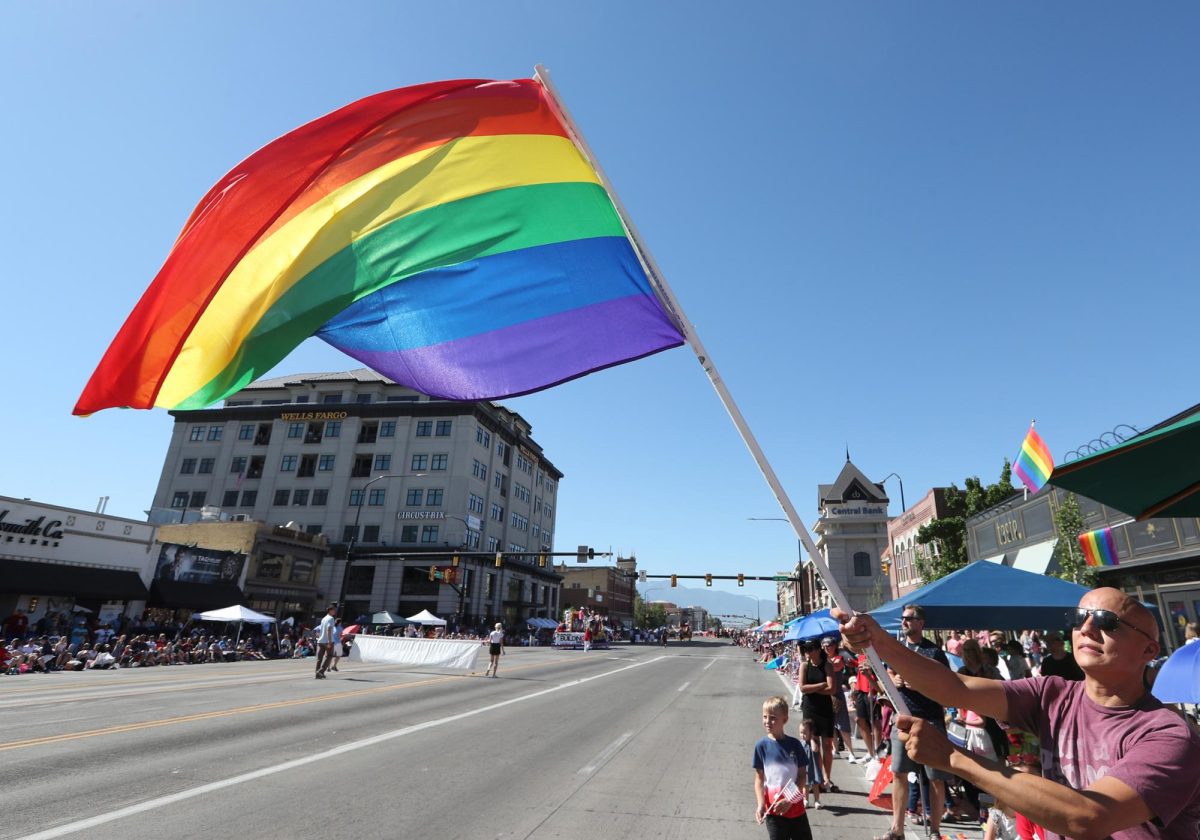
“Tonight is the night, we will fight till it’s over,” came lyrics from loudspeakers at City Creek Park in Salt Lake City. A song may have never captured so many emotion so well.
On Friday night, just hours after the Supreme Court of the United States announced a 5-4 ruling in favor of legalizing same-sex marriage, hundreds of LGBT rights supporters gathered in Salt Lake City to celebrate.
“We knew that the decision was coming down, just not when,” Colleen Mewing, a Weber State University alumni and one of the event organizers, said. “Some thought it would be Monday, but it ended up being today.”
When Mewing and her crew heard the news, they headed to Salt Lake City and began setting up booths and a small stage at the park. They began at 3 p.m., just three hours before the anticipated start of the rally.
Despite the short notice, hundreds of people came to celebrate.
“It’s just awesome,” said Max Barker, who spent most of the day on Facebook discussing the ruling before coming to the celebration.
“This makes the world a better place to live in,” said Brady Wilkinson, one of Barker’s friends. “This fight has never been about gay rights, but about civil rights.”
While many described the Supreme Court decision as exactly what they expected to happen, it came as sudden as an earthquake to others.
“I wanted to cry, but I’m still waiting for the right moment,” Brianne Johnson said. After being raised in a conservative home, Johnson said she developed a strong love for the marriage equality movement and this decision affected her deeply.
“It was really when I saw how the LDS church treated members of the LGBT community that I decided to leave,” Johnson said.
While many attendees agreed that the ruling was a big step, some also felt that their goals had not been reached yet.
“It’s really important to celebrate our wins and also to remember the work we still need to do for our transgender siblings,” said Ali Johnson, a recent WSU graduate.
Abigail Hill, another participant in the rally, agreed.
“We need more rights for transsexual men and women,” she said. “They are the ones who face more discrimination than anyone else at the moment.”
While the notion of equality brought forth mostly positive feelings among the attendees, not everyone agreed that it should be the ultimate goal of the movement.
“Perfect equality is probably not achievable, not even desirable, because it would take away everyone’s individuality,” Wilkinson said.
Still, the prevention of hate crimes and discrimination as a whole appeared to be a common theme in the feelings of rally participants. “Hopefully by the time my children are around, they won’t have to deal with discrimination at all,” said Meghan Abbott, Mewing’s stepdaughter.
Abbott may have reason to hope.
“To be honest, I did not believe that I would live to see this happen at all, because it seemed so unachievable just a few years ago,” said Mewing, who got married to her wife in December 2013, right after the Supreme Court first struck down the Utah-specific ban on same-sex marriage.
With that much tailwind for what Mewing calls the “movement of the century,” many at the rally on Friday night seemed to believe that a discrimination-free environment in Utah could indeed become a reality someday.







